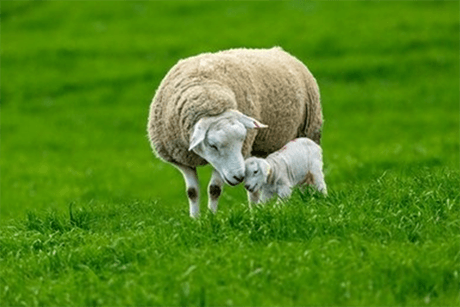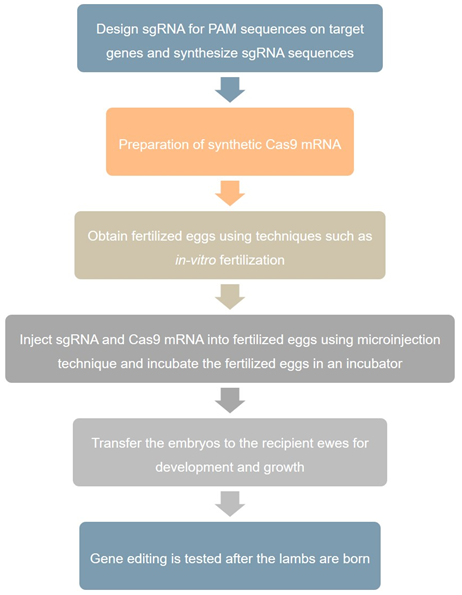Since the domestication of wild sheep by humans, sheep have become one of the most important livestock for meat worldwide, and in the process of human cultivation, they have gradually differentiated into sheep and goats to meet the diverse needs of people.
With economic development and cognitive improvement, people are paying more and more attention to their quality of life, gradually changing their requirements for food, clothing, housing, and transportation as well as their lifestyles. Due to its low cholesterol and tender taste, goat meat has health benefits. Goat milk has high nutritional value and is easily absorbed. Wool fiber is soft and flexible, and not easy to stain. As a result, the demand for sheep is increasing and sheep farming has become one of the most important economic pillars in the farming industry of various countries.

To stabilize and improve the various good traits of sheep and further reduce the cost of breeding, a large number of animal breeders are dedicated to this. Over the years, Lifeasible has also made good progress in this area, and we have successfully applied gene-editing technology to improve sheep meat, milk, and coat quality in many ways.
We provide CRISPR/Cas9 gene-editing technology with its high efficiency, speed, precision, and specificity to greatly reduce breeding time and accelerate the breeding process of sheep while providing new research ideas for sheep genetic breeding, genomics research, and disease prevention and control.
Sheep is an important livestock economic animal and wool is its main high value-added product. Wool is an all-natural, renewable, degradable, and green fiber with natural breathability and the unique ability to absorb and release air and moisture.
Lifeasible can use CRISPR/Cas9 gene-editing technology to edit functional genes related to wool growth traits, including Hox gene, BMP gene, β-linked protein gene, KAP gene, and key genes in the Wnt signaling pathway, Notch signaling pathway, and FGF signaling pathway to obtain gene-edited sheep.
 Figure 1. Process of functional genes related to wool growth traits knockout using CRISPR/Cas9 technology.
Figure 1. Process of functional genes related to wool growth traits knockout using CRISPR/Cas9 technology.
References
Lifeasible has established a one-stop service platform for plants. In addition to obtaining customized solutions for plant genetic engineering, customers can also conduct follow-up analysis and research on plants through our analysis platform. The analytical services we provide include but are not limited to the following:
Get Latest Lifeasible News and Updates Directly to Your Inbox
Adaptive Evolutionary Mechanism of Plants
February 28, 2025
Unraveling Cotton Development: Insights from Multi-Omics Studies
February 27, 2025